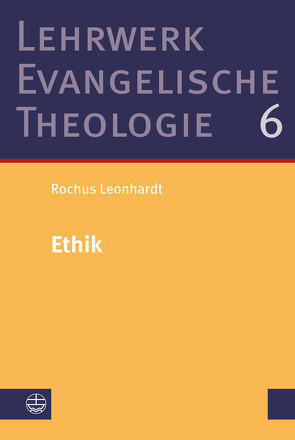
Ethik ist eine wissenschaftliche Disziplin, in der die Frage nach dem moralisch richtigen Handeln des Menschen erörtert wird. Obwohl sie also keine spezifisch theologische Wissenschaft ist, begegnet sie im Spektrum der theologischen Fächer als eine Teildisziplin der Systematischen Theologie. Dies liegt daran, dass der christliche Glaube auch eine lebens- und damit handlungsorientierende Bedeutung hat.
Das Lehrbuch des Leipziger Theologen Rochus Leonhardt widmet sich in einem ersten Teil der Etablierung der Ethik als einer philosophischen Disziplin und fragt nach der Spezifik der theologischen Ethik. Ein zweiter Teil thematisiert zentrale biblische Bezugstexte und Leitbegriffe der christlichen Ethik und stellt maßgebliche Ethik-Typen vor. Der dritte Teil behandelt wichtige individual- und sozialethische Themen. Leitend ist dabei die Orientierung an den rechtfertigungstheologischen Grundeinsichten Martin Luthers.
[Ethics]
Ethics is a philosophical discipline whose issue is morally right and wrong in human actions. Although it is therefore not a specifically theological academic discipline, it is encountered in the spectrum of theological subjects as a sub-discipline of systematic theology. This is due to the fact the Christian faith also gives an orientation for the life and actions of human beings.
The textbook of the Leipzig theologian Rochus Leonhardt consists of three parts. The first part treats the establishment of ethics as a philosophical discipline and the specifics of theological ethics. A second part deals with central biblical reference texts and guiding concepts of Christian ethics and presents authoritative types of ethics. The third part deals with important issues of individual ethics and social ethics. The guiding principle here is the orientation to Martin Luther's theological insights on justification.
Aktualisiert: 2022-08-30
> findR *
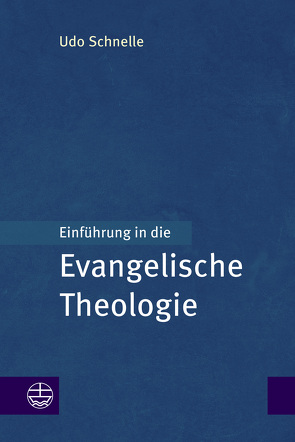
Dieses Buch des international anerkannten Exegeten Udo Schnelle führt in die Grundfragen, die Grundlagen und in die Fächer der Evangelischen Theologie ein: Warum Theologie an der Universität? Weshalb Theologie und nicht Religion? Welche Bedeutung hat die Bibel? Was verbindet die einzelnen Fächer der Theologie und gibt es ein gemeinsames Zentrum? Einen weiteren Schwerpunkt bildet die Frage nach dem Ort und der Leistungsfähigkeit von Theologie im Kontext neuzeitlichen Denkens. Es zeigt sich, dass Vernunft sowie Offenbarung, Glaube und Mythos keine Gegensätze darstellen, sondern unterschiedliche Bereiche der Wirklichkeit erfassen.
Theologisch steht im Mittelpunkt dieses fächerübergreifenden Lehrbuches die Vorstellung der Teilhabe am anhaltenden Schöpferwirken des einen Gottes: in der Geschichte Israels, in Jesus Christus und in der Kirche.
Dieses Lehrbuch führt in die Grundfragen und Struktur der Evangelischen Theologie ein – mit zahlreichen Begriffsbestimmungen und Blicken in die Historie.
[Introduction to Protestant Theology]
This book by internationally renowned exegete Udo Schnelle is an introduction to the basic questions, foundations, and subjects of Protestant theology: Why Theology at the University? Why theology and not religion? What is the significance of the Bible? What connects the individual subjects of theology and is there a common center? Another focus is on the question of the place and efficiency of theology in the context of modern thought. It is shown that reason as well as revelation, faith and myth are not opposites, but cover different areas of reality.
Theologically, the focus of this interdisciplinary textbook is on the notion of participation in the ongoing creative work of the one God: in the history of Israel, in Jesus Christ, and in the Church..
Aktualisiert: 2022-07-14
> findR *
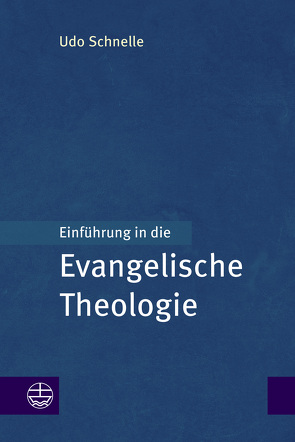
Dieses Buch des international anerkannten Exegeten Udo Schnelle führt in die Grundfragen, die Grundlagen und in die Fächer der Evangelischen Theologie ein: Warum Theologie an der Universität? Weshalb Theologie und nicht Religion? Welche Bedeutung hat die Bibel? Was verbindet die einzelnen Fächer der Theologie und gibt es ein gemeinsames Zentrum? Einen weiteren Schwerpunkt bildet die Frage nach dem Ort und der Leistungsfähigkeit von Theologie im Kontext neuzeitlichen Denkens. Es zeigt sich, dass Vernunft sowie Offenbarung, Glaube und Mythos keine Gegensätze darstellen, sondern unterschiedliche Bereiche der Wirklichkeit erfassen.
Theologisch steht im Mittelpunkt dieses fächerübergreifenden Lehrbuches die Vorstellung der Teilhabe am anhaltenden Schöpferwirken des einen Gottes: in der Geschichte Israels, in Jesus Christus und in der Kirche.
Dieses Lehrbuch führt in die Grundfragen und Struktur der Evangelischen Theologie ein – mit zahlreichen Begriffsbestimmungen und Blicken in die Historie.
[Introduction to Protestant Theology]
This book by internationally renowned exegete Udo Schnelle is an introduction to the basic questions, foundations, and subjects of Protestant theology: Why Theology at the University? Why theology and not religion? What is the significance of the Bible? What connects the individual subjects of theology and is there a common center? Another focus is on the question of the place and efficiency of theology in the context of modern thought. It is shown that reason as well as revelation, faith and myth are not opposites, but cover different areas of reality.
Theologically, the focus of this interdisciplinary textbook is on the notion of participation in the ongoing creative work of the one God: in the history of Israel, in Jesus Christ, and in the Church..
Aktualisiert: 2022-04-01
> findR *
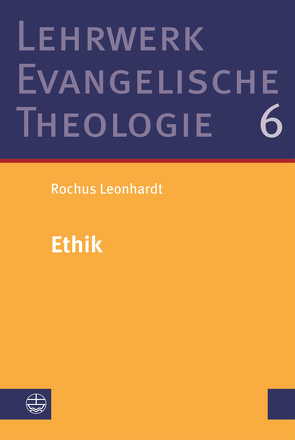
Ethik ist eine wissenschaftliche Disziplin, in der die Frage nach dem moralisch richtigen Handeln des Menschen erörtert wird. Obwohl sie also keine spezifisch theologische Wissenschaft ist, begegnet sie im Spektrum der theologischen Fächer als eine Teildisziplin der Systematischen Theologie. Dies liegt daran, dass der christliche Glaube auch eine lebens- und damit handlungsorientierende Bedeutung hat.
Das Lehrbuch des Leipziger Theologen Rochus Leonhardt widmet sich in einem ersten Teil der Etablierung der Ethik als einer philosophischen Disziplin und fragt nach der Spezifik der theologischen Ethik. Ein zweiter Teil thematisiert zentrale biblische Bezugstexte und Leitbegriffe der christlichen Ethik und stellt maßgebliche Ethik-Typen vor. Der dritte Teil behandelt wichtige individual- und sozialethische Themen. Leitend ist dabei die Orientierung an den rechtfertigungstheologischen Grundeinsichten Martin Luthers.
[Ethics]
Ethics is a philosophical discipline whose issue is morally right and wrong in human actions. Although it is therefore not a specifically theological academic discipline, it is encountered in the spectrum of theological subjects as a sub-discipline of systematic theology. This is due to the fact the Christian faith also gives an orientation for the life and actions of human beings.
The textbook of the Leipzig theologian Rochus Leonhardt consists of three parts. The first part treats the establishment of ethics as a philosophical discipline and the specifics of theological ethics. A second part deals with central biblical reference texts and guiding concepts of Christian ethics and presents authoritative types of ethics. The third part deals with important issues of individual ethics and social ethics. The guiding principle here is the orientation to Martin Luther's theological insights on justification.
Aktualisiert: 2022-04-01
> findR *
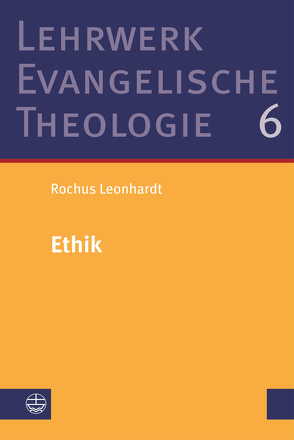
Ethik ist eine wissenschaftliche Disziplin, in der die Frage nach dem moralisch richtigen Handeln des Menschen erörtert wird. Obwohl sie also keine spezifisch theologische Wissenschaft ist, begegnet sie im Spektrum der theologischen Fächer als eine Teildisziplin der Systematischen Theologie. Dies liegt daran, dass der christliche Glaube auch eine lebens- und damit handlungsorientierende Bedeutung hat.
Das Lehrbuch des Leipziger Theologen Rochus Leonhardt widmet sich in einem ersten Teil der Etablierung der Ethik als einer philosophischen Disziplin und fragt nach der Spezifik der theologischen Ethik. Ein zweiter Teil thematisiert zentrale biblische Bezugstexte und Leitbegriffe der christlichen Ethik und stellt maßgebliche Ethik-Typen vor. Der dritte Teil behandelt wichtige individual- und sozialethische Themen. Leitend ist dabei die Orientierung an den rechtfertigungstheologischen Grundeinsichten Martin Luthers.
[Ethics]
Ethics is a philosophical discipline whose issue is morally right and wrong in human actions. Although it is therefore not a specifically theological academic discipline, it is encountered in the spectrum of theological subjects as a sub-discipline of systematic theology. This is due to the fact the Christian faith also gives an orientation for the life and actions of human beings.
The textbook of the Leipzig theologian Rochus Leonhardt consists of three parts. The first part treats the establishment of ethics as a philosophical discipline and the specifics of theological ethics. A second part deals with central biblical reference texts and guiding concepts of Christian ethics and presents authoritative types of ethics. The third part deals with important issues of individual ethics and social ethics. The guiding principle here is the orientation to Martin Luther's theological insights on justification.
Aktualisiert: 2020-11-06
> findR *
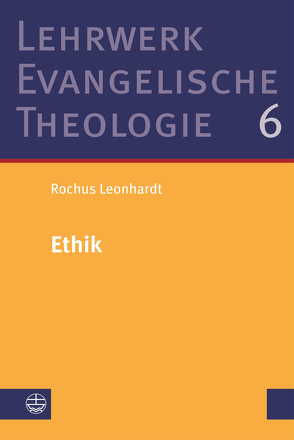
Ethik ist eine wissenschaftliche Disziplin, in der die Frage nach dem moralisch richtigen Handeln des Menschen erörtert wird. Obwohl sie also keine spezifisch theologische Wissenschaft ist, begegnet sie im Spektrum der theologischen Fächer als eine Teildisziplin der Systematischen Theologie. Dies liegt daran, dass der christliche Glaube auch eine lebens- und damit handlungsorientierende Bedeutung hat.
Das Lehrbuch des Leipziger Theologen Rochus Leonhardt widmet sich in einem ersten Teil der Etablierung der Ethik als einer philosophischen Disziplin und fragt nach der Spezifik der theologischen Ethik. Ein zweiter Teil thematisiert zentrale biblische Bezugstexte und Leitbegriffe der christlichen Ethik und stellt maßgebliche Ethik-Typen vor. Der dritte Teil behandelt wichtige individual- und sozialethische Themen. Leitend ist dabei die Orientierung an den rechtfertigungstheologischen Grundeinsichten Martin Luthers.
[Ethics]
Ethics is a philosophical discipline whose issue is morally right and wrong in human actions. Although it is therefore not a specifically theological academic discipline, it is encountered in the spectrum of theological subjects as a sub-discipline of systematic theology. This is due to the fact the Christian faith also gives an orientation for the life and actions of human beings.
The textbook of the Leipzig theologian Rochus Leonhardt consists of three parts. The first part treats the establishment of ethics as a philosophical discipline and the specifics of theological ethics. A second part deals with central biblical reference texts and guiding concepts of Christian ethics and presents authoritative types of ethics. The third part deals with important issues of individual ethics and social ethics. The guiding principle here is the orientation to Martin Luther's theological insights on justification.
Aktualisiert: 2022-04-01
> findR *
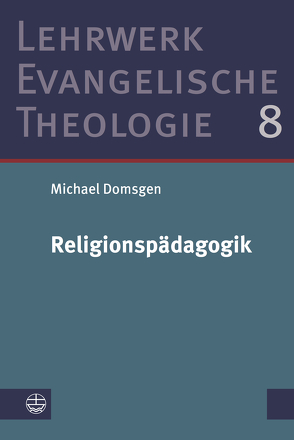
Religiöse Lehr- und Lernprozesse angemessen wahrzunehmen und sie in der Profilierung christlich motivierten Lehrens und Lernens handlungsorientierend zu beschreiben, ist Ziel der von Michael Domsgen vorgelegten Religionspädagogik. Der Hallenser Religionspädagoge entfaltet den Gegenstand in problemgeschichtlicher, empirischer und komparativer sowie systematischer Perspektive, bevor er vor dem Hintergrund gegenwärtiger Herausforderungen eine Neujustierung von Religionspädagogik als Theorie evangelischen Empowerments vornimmt. Von dort her beschreibt er religionsdidaktische Perspektiven, die er mit Blick auf die Lernorte Familie, Schule und Gemeinde vertieft. Neben den klassischen Handlungsfeldern (wie z.B. Religions- und Konfirmandenunterricht) finden auch Beispiele zur Vernetzung der Lernorte Berücksichtigung.
[Religious Pedagogy]
In his publication on religious pedagogy Michael Domsgen aims at a thorough analysis of various processes in religious education. Furthermore, he aims at their practice-oriented description and at a focus on their Christian profile. The professor at Martin-Luther-University of Halle-Wittenberg presents his subject by combining historical depth, empirical insights, comparisons with other countries and a systematic approach. On that basis, he gives an overview of present challenges in the field and outlines a realignment of religious pedagogy as a theory of Protestant empowerment. From there, new perspectives on religious education are given, including the settings family, school (e.g. religious education) and parish (e.g. confirmation work) with a special focus on relating them to each other.
Aktualisiert: 2022-04-01
> findR *
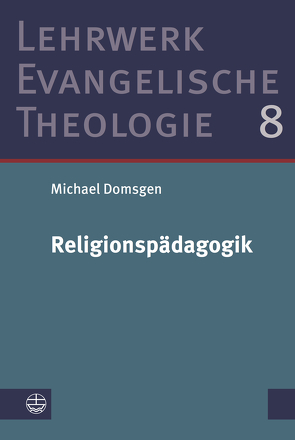
Religiöse Lehr- und Lernprozesse angemessen wahrzunehmen und sie in der Profilierung christlich motivierten Lehrens und Lernens handlungsorientierend zu beschreiben, ist Ziel der von Michael Domsgen vorgelegten Religionspädagogik. Der Hallenser Religionspädagoge entfaltet den Gegenstand in problemgeschichtlicher, empirischer und komparativer sowie systematischer Perspektive, bevor er vor dem Hintergrund gegenwärtiger Herausforderungen eine Neujustierung von Religionspädagogik als Theorie evangelischen Empowerments vornimmt. Von dort her beschreibt er religionsdidaktische Perspektiven, die er mit Blick auf die Lernorte Familie, Schule und Gemeinde vertieft. Neben den klassischen Handlungsfeldern (wie z.B. Religions- und Konfirmandenunterricht) finden auch Beispiele zur Vernetzung der Lernorte Berücksichtigung.
[Religious Pedagogy]
In his publication on religious pedagogy Michael Domsgen aims at a thorough analysis of various processes in religious education. Furthermore, he aims at their practice-oriented description and at a focus on their Christian profile. The professor at Martin-Luther-University of Halle-Wittenberg presents his subject by combining historical depth, empirical insights, comparisons with other countries and a systematic approach. On that basis, he gives an overview of present challenges in the field and outlines a realignment of religious pedagogy as a theory of Protestant empowerment. From there, new perspectives on religious education are given, including the settings family, school (e.g. religious education) and parish (e.g. confirmation work) with a special focus on relating them to each other.
Aktualisiert: 2022-06-02
> findR *
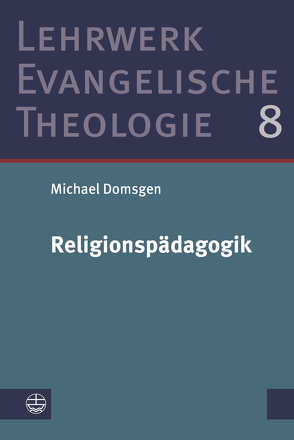
Religiöse Lehr- und Lernprozesse angemessen wahrzunehmen und sie in der Profilierung christlich motivierten Lehrens und Lernens handlungsorientierend zu beschreiben, ist Ziel der von Michael Domsgen vorgelegten Religionspädagogik. Der Hallenser Religionspädagoge entfaltet den Gegenstand in problemgeschichtlicher, empirischer und komparativer sowie systematischer Perspektive, bevor er vor dem Hintergrund gegenwärtiger Herausforderungen eine Neujustierung von Religionspädagogik als Theorie evangelischen Empowerments vornimmt. Von dort her beschreibt er religionsdidaktische Perspektiven, die er mit Blick auf die Lernorte Familie, Schule und Gemeinde vertieft. Neben den klassischen Handlungsfeldern (wie z.B. Religions- und Konfirmandenunterricht) finden auch Beispiele zur Vernetzung der Lernorte Berücksichtigung.
[Religious Pedagogy]
In his publication on religious pedagogy Michael Domsgen aims at a thorough analysis of various processes in religious education. Furthermore, he aims at their practice-oriented description and at a focus on their Christian profile. The professor at Martin-Luther-University of Halle-Wittenberg presents his subject by combining historical depth, empirical insights, comparisons with other countries and a systematic approach. On that basis, he gives an overview of present challenges in the field and outlines a realignment of religious pedagogy as a theory of Protestant empowerment. From there, new perspectives on religious education are given, including the settings family, school (e.g. religious education) and parish (e.g. confirmation work) with a special focus on relating them to each other.
Aktualisiert: 2020-11-06
> findR *
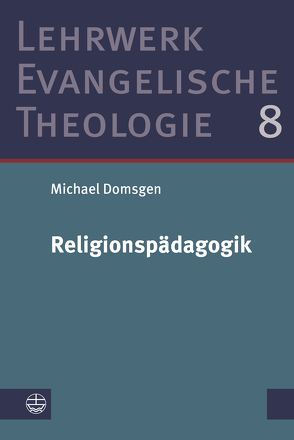
Religiöse Lehr- und Lernprozesse angemessen wahrzunehmen und sie in der Profilierung christlich motivierten Lehrens und Lernens handlungsorientierend zu beschreiben, ist Ziel der von Michael Domsgen vorgelegten Religionspädagogik. Der Hallenser Religionspädagoge entfaltet den Gegenstand in problemgeschichtlicher, empirischer und komparativer sowie systematischer Perspektive, bevor er vor dem Hintergrund gegenwärtiger Herausforderungen eine Neujustierung von Religionspädagogik als Theorie evangelischen Empowerments vornimmt. Von dort her beschreibt er religionsdidaktische Perspektiven, die er mit Blick auf die Lernorte Familie, Schule und Gemeinde vertieft. Neben den klassischen Handlungsfeldern (wie z.B. Religions- und Konfirmandenunterricht) finden auch Beispiele zur Vernetzung der Lernorte Berücksichtigung.
[Religious Pedagogy]
In his publication on religious pedagogy Michael Domsgen aims at a thorough analysis of various processes in religious education. Furthermore, he aims at their practice-oriented description and at a focus on their Christian profile. The professor at Martin-Luther-University of Halle-Wittenberg presents his subject by combining historical depth, empirical insights, comparisons with other countries and a systematic approach. On that basis, he gives an overview of present challenges in the field and outlines a realignment of religious pedagogy as a theory of Protestant empowerment. From there, new perspectives on religious education are given, including the settings family, school (e.g. religious education) and parish (e.g. confirmation work) with a special focus on relating them to each other.
Aktualisiert: 2022-04-01
> findR *
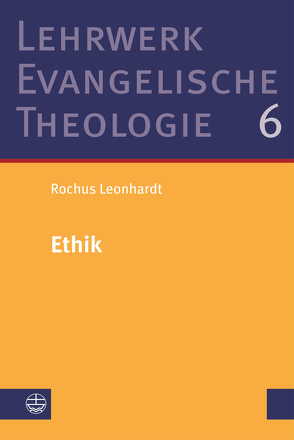
Ethik ist eine wissenschaftliche Disziplin, in der die Frage nach dem moralisch richtigen Handeln des Menschen erörtert wird. Obwohl sie also keine spezifisch theologische Wissenschaft ist, begegnet sie im Spektrum der theologischen Fächer als eine Teildisziplin der Systematischen Theologie. Dies liegt daran, dass der christliche Glaube auch eine lebens- und damit handlungsorientierende Bedeutung hat.
Das Lehrbuch des Leipziger Theologen Rochus Leonhardt widmet sich in einem ersten Teil der Etablierung der Ethik als einer philosophischen Disziplin und fragt nach der Spezifik der theologischen Ethik. Ein zweiter Teil thematisiert zentrale biblische Bezugstexte und Leitbegriffe der christlichen Ethik und stellt maßgebliche Ethik-Typen vor. Der dritte Teil behandelt wichtige individual- und sozialethische Themen. Leitend ist dabei die Orientierung an den rechtfertigungstheologischen Grundeinsichten Martin Luthers.
[Ethics]
Ethics is a philosophical discipline whose issue is morally right and wrong in human actions. Although it is therefore not a specifically theological academic discipline, it is encountered in the spectrum of theological subjects as a sub-discipline of systematic theology. This is due to the fact the Christian faith also gives an orientation for the life and actions of human beings.
The textbook of the Leipzig theologian Rochus Leonhardt consists of three parts. The first part treats the establishment of ethics as a philosophical discipline and the specifics of theological ethics. A second part deals with central biblical reference texts and guiding concepts of Christian ethics and presents authoritative types of ethics. The third part deals with important issues of individual ethics and social ethics. The guiding principle here is the orientation to Martin Luther's theological insights on justification.
Aktualisiert: 2022-04-01
> findR *
MEHR ANZEIGEN
Bücher zum Thema Lehrbuch Theologie
Sie suchen ein Buch über Lehrbuch Theologie? Bei Buch findr finden Sie eine große Auswahl Bücher zum
Thema Lehrbuch Theologie. Entdecken Sie neue Bücher oder Klassiker für Sie selbst oder zum Verschenken. Buch findr
hat zahlreiche Bücher zum Thema Lehrbuch Theologie im Sortiment. Nehmen Sie sich Zeit zum Stöbern und finden Sie das
passende Buch für Ihr Lesevergnügen. Stöbern Sie durch unser Angebot und finden Sie aus unserer großen Auswahl das
Buch, das Ihnen zusagt. Bei Buch findr finden Sie Romane, Ratgeber, wissenschaftliche und populärwissenschaftliche
Bücher uvm. Bestellen Sie Ihr Buch zum Thema Lehrbuch Theologie einfach online und lassen Sie es sich bequem nach
Hause schicken. Wir wünschen Ihnen schöne und entspannte Lesemomente mit Ihrem Buch.
Lehrbuch Theologie - Große Auswahl Bücher bei Buch findr
Bei uns finden Sie Bücher beliebter Autoren, Neuerscheinungen, Bestseller genauso wie alte Schätze. Bücher zum
Thema Lehrbuch Theologie, die Ihre Fantasie anregen und Bücher, die Sie weiterbilden und Ihnen wissenschaftliche
Fakten vermitteln. Ganz nach Ihrem Geschmack ist das passende Buch für Sie dabei. Finden Sie eine große Auswahl
Bücher verschiedenster Genres, Verlage, Autoren bei Buchfindr:
Sie haben viele Möglichkeiten bei Buch findr die passenden Bücher für Ihr Lesevergnügen zu entdecken. Nutzen Sie
unsere Suchfunktionen, um zu stöbern und für Sie interessante Bücher in den unterschiedlichen Genres und Kategorien
zu finden. Unter Lehrbuch Theologie und weitere Themen und Kategorien finden Sie schnell und einfach eine Auflistung
thematisch passender Bücher. Probieren Sie es aus, legen Sie jetzt los! Ihrem Lesevergnügen steht nichts im Wege.
Nutzen Sie die Vorteile Ihre Bücher online zu kaufen und bekommen Sie die bestellten Bücher schnell und bequem
zugestellt. Nehmen Sie sich die Zeit, online die Bücher Ihrer Wahl anzulesen, Buchempfehlungen und Rezensionen zu
studieren, Informationen zu Autoren zu lesen. Viel Spaß beim Lesen wünscht Ihnen das Team von Buchfindr.










